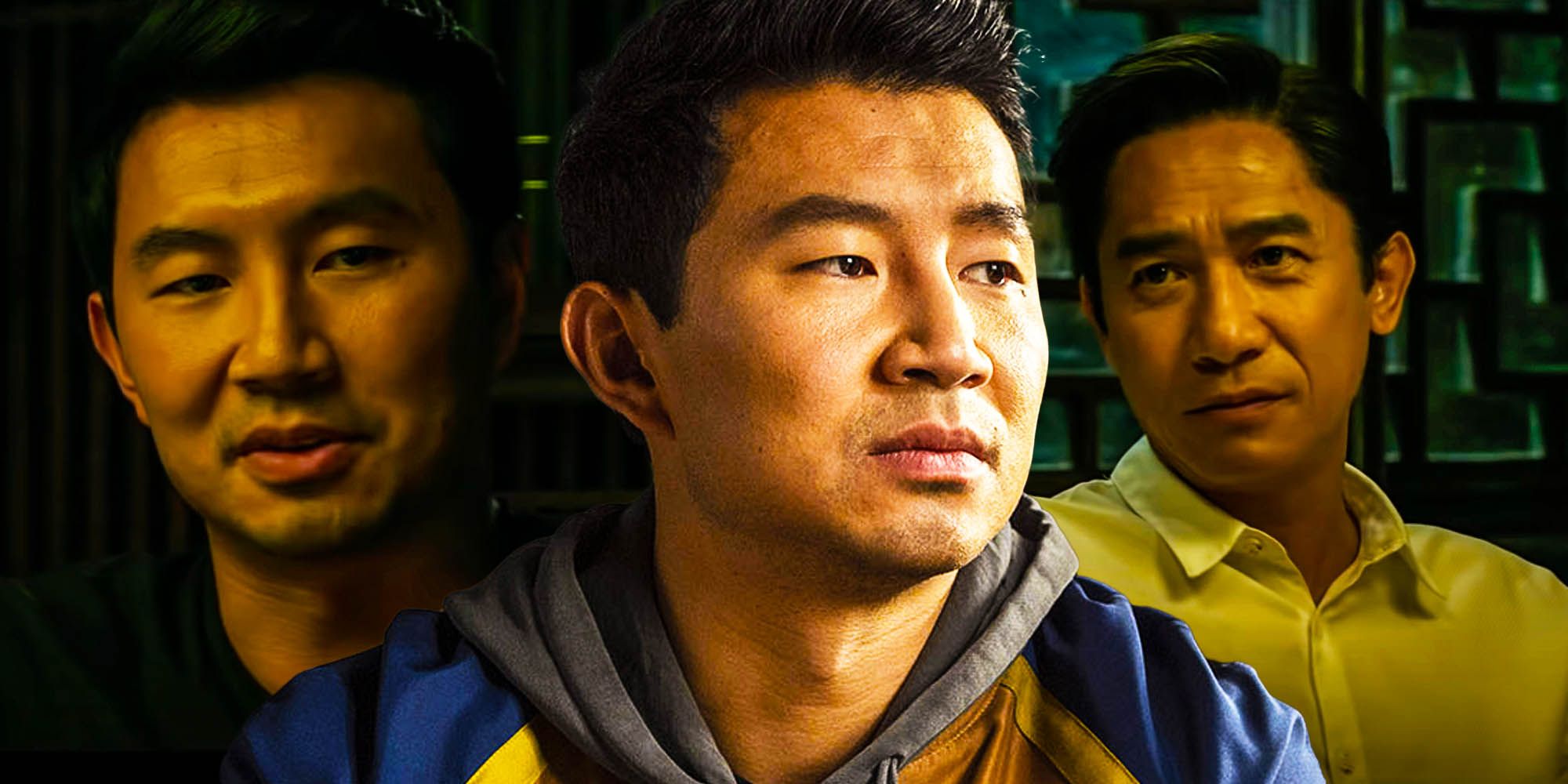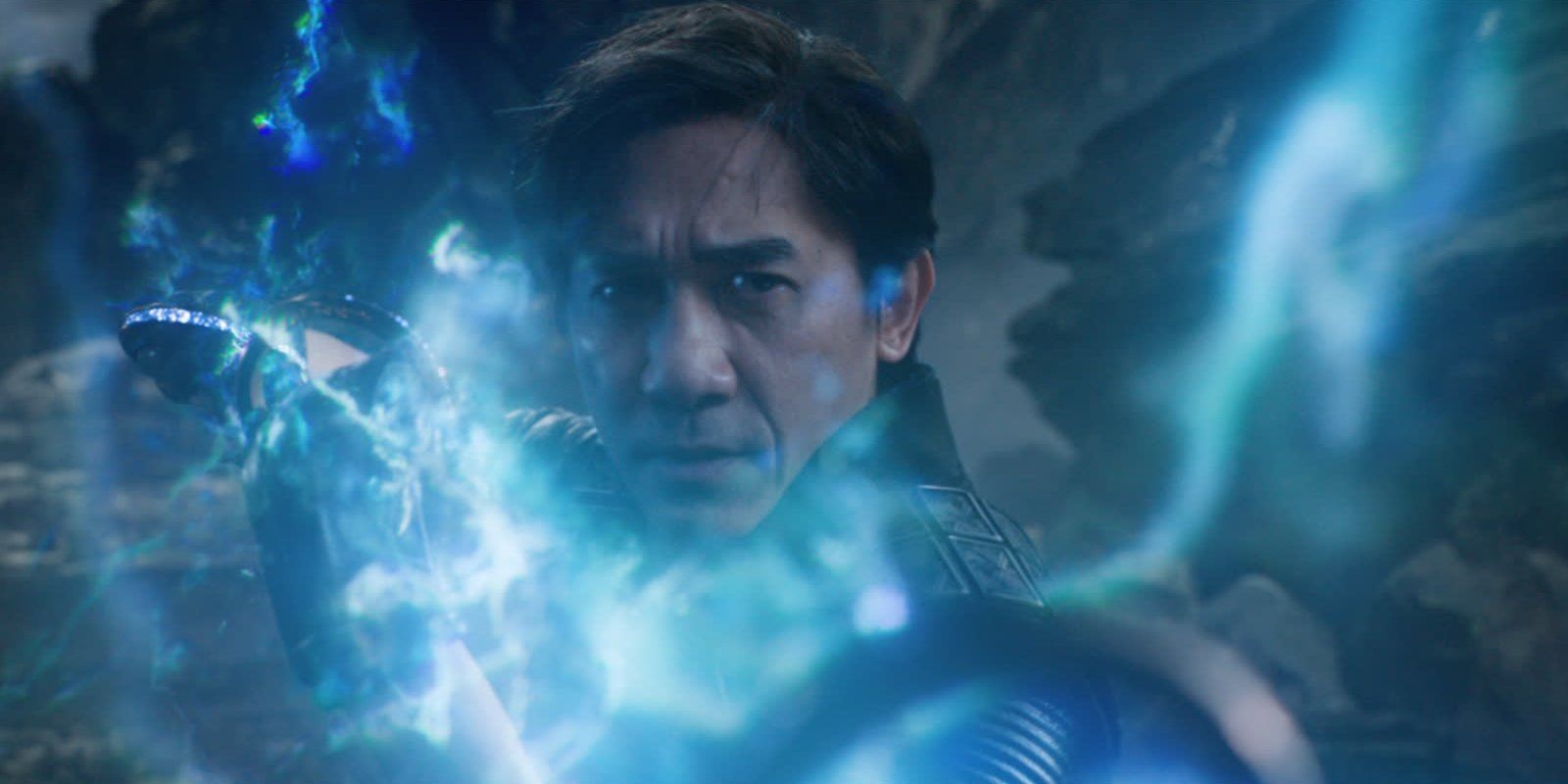Shang-Chi: How Trailer Lines Cut From The Movie Changed His Personality

Warning: SPOILERS for Shang-Chi and the Legend of the Ten Rings.
Shang-Chi and the Legend of the Ten Rings was a veritable success among fans and critics alike, but trailer lines that didn’t make the final cut for the film changed Shang-Chi’s (Simu Liu) on-screen presence, and fans took notice. As the second film in the MCU’s Phase 4, Shang-Chi has the highest audience score on Rotten Tomatoes, unseating Black Panther at a whopping 98%. Despite the overwhelming success of the film, especially since it was released while theaters were still recovering from pandemic restrictions, Simu Liu’s performance as the titular hero has been criticized.
Following Shang-Chi as he contends with a shadowed past and family drama that resurfaces with a vengeance, Shang-Chi marks the first new title hero to be introduced to the MCU post-Avengers: Endgame. As such, the film faced pressure to deliver to audiences a precise mixture of new content while staying true to what makes the MCU and its characters so successful. By most accounts, the film delivered. Why, then, have some criticized Liu’s ability to carry the movie as the main character?
The criticism against Liu’s performance stems from moments in the official movie trailer that simply don’t translate to the final version of the film, leaving some fans with the impression that Shang-Chi’s character is somewhat flat. The film was still a smash hit, and Shang-Chi has proven that he’ll be a vital character moving forward, but those who claim that there was still something missing from his personality can point to the film’s teaser and official trailers as proof. In the trailers, Shang-Chi exhibits vehement deviance of his father, Wenwu, that appears to be watered down in the final cut of the film.

Shang-Chi’s interactions with Wenwu in the trailers lead the audiences to believe that their father/son relationship is virtually irredeemable. The story centers on the premise that the hero must prove himself by contending with the sins of his estranged father. However, the Shang-Chi trailer makes no mention of Wenwu’s motives. Wenwu’s backstory as a warlord turned family man turned mourning widower plays a huge role in how Shang-Chi, and ultimately the audience, view Wenwu as the villain of the film and changes the father/son dynamic from what appears in the trailers.
The studio may have decided to dial back the animosity in the finished film in order to make Shang-Chi’s father a more sympathetic villain. Marvel seems to have been making a noticeable effort to portray villains whose actions/motives cannot be called inherently evil but simply misguided. Rather than allow Shang-Chi to act on valid feelings toward a man who essentially abused him mentally and physically in order to turn him into a child assassin, the film instead chooses to highlight all of the ways Wenwu used to be a good father. Despite the familial battle at the climax of the film, when Wenwu sacrifices himself so that Shang-Chi can claim the Ten Rings to defeat the Dweller-in-Darkness, it is not with hatred that Shang-Chi takes the rings: it is with a sense of family tradition. This change cannot entirely translate to criticism for Liu’s acting; in fact, many fans loved the goofy sensitivity of the new hero, which he exhibits despite his training as a ruthless assassin.
Ultimately, the missing lines seem to have made Shang-Chi a passive character in the face of his father. He appears to be just as conflicted about what side his father is really on as the audience is, leading to a hero who has all of the physical power and none of the verbal bite. While Liu’s chemistry with the other actors (especially Awkwafina as Katy) makes Shang-Chi and the Legend of the Ten Rings fresh and enjoyable, the new hero is missing the fire that the trailer suggested of his character.
from ScreenRant - Feed https://ift.tt/3zEWAaG
via Whole story

Post a Comment